 Your new post is loading...
 Your new post is loading...

|
Scooped by
Gust MEES
|
Avec les nouveaux modèles d’enseignement, tous les équilibres, tous les codes sont remis en cause. Au sens strict du terme, il n’y a plus d’enseignant, pas de cours, pas de programme, rien que des cas concrets à résoudre en trouvant soi-même la solution ou en s’associant à d’autres élèves. Cette pédagogie met l’accent sur le comportement, les capacités à travailler à plusieurs et à apprendre très vite en autonomie.
Pour Romain Martin, vice-recteur pour les affaires académiques de l’Université du Luxembourg, «la principale erreur consiste à se focaliser sur les technologies elles-mêmes. Il ne faut pas simplement regarder l’outil, mais comment ces outils sont utilisés.» Une désacralisation des technologies pourtant au cœur des enjeux, au profit d’une démarche pédagogique nouvelle. La tendance est ainsi à l’«adaptive learning». [Gust MEES] pratiquant ceci déjà depuis 2002 et enfin reconnu... Learn more / En savoir plus / Mehr erfahren: https://www.scoop.it/t/21st-century-learning-and-teaching/?&tag=Modern+Learning https://gustmees.wordpress.com/?s=learning+2+learn

|
Scooped by
Gust MEES
|
Kuhn's idea was, itself, revolutionary in its time. It caused a major change in the way that academics talk about science; and, so, it may be that it caused (or was part of) a "paradigm shift" in the history and sociology of science. However, Kuhn would not recognize such a paradigm shift.

|
Scooped by
Gust MEES
|
Motiver ?
Depuis la fin du XIXème siècle, de nombreux de pédagogues ont avancé des propositions pour donner vie et force au désir d’apprendre. Alfred Binet, pédagogue et psychologue français, plus connu pour ses tests, écrivait par exemple en 1902 dans son livre « Les idées modernes sur les enfants » :
: « Au lieu de lui expliquer des idées, il vaut mieux les lui faire trouver ; au lieu de lui donner des ordres, il vaut mieux lui laisser la spontanéité de ses actes, et n’intervenir que pour contrôler ». Il ajoutait plus loin : « Entrez dans une classe ; si vous voyez les élèves immobiles, écoutant sans peine un maître agité qui pérore dans sa chaire, ou encore vous voyez ces enfants, copier, écrire le cours que le maître leur dicte, dites-vous que c’est de la mauvaise pédagogie. J’aime mieux une classe où je verrais des enfants moins silencieux, plus bruyants mais occupés à faire le travail le plus modeste, pourvu que ce soit un travail où ils mettent un effort personnel, un travail qui est leur œuvre, qui exige un peu de réflexion, de jugement et de goût. »
Depuis la mise en place des écoles actives voici plus d’un siècle, l’activité justement et l’autonomie de l’élève, son plaisir de découvrir par lui-même, de se questionner et de chercher sont recommandés comme les meilleurs agents de la motivation. Les questions nourrissent la curiosité et entraînent la dynamique du « connaître ». Les attentes de l’enfant, ses projets jouent un rôle moteur, auquel contribuent fondamentalement la confiance dans ses compétence intellectuelles et l’estime de soi, que notre système scolaire met particulièrement à mal. Learn more / En savoir plus / Mehr erfahren: https://www.scoop.it/t/21st-century-learning-and-teaching/?&tag=Modern+Learning

|
Scooped by
Gust MEES
|

|
Scooped by
Gust MEES
|
“The future of education is digital. We live in an increasingly digital world, where technology is a part of our lives in so many ways. Now more than ever, it is crucial that we incorporate digital technology into education. To prepare students for higher education and future jobs, we must ensure that they are familiar with technology. Administrators who want to prepare their K-12 school for the future of education should look at the ways they use technology in the classroom. Schools that are future-ready are those that blend technology with learning seamlessly and include technology in nearly every lesson.”
I just shared my thoughts on the future of education, but what do my peers think? To find out, we decided to produce an expert roundup on the topic of the future of education. We asked 106 education experts to answer one question: “What are your thoughts on the future of education?” In part 1 of this series, we will focus on the future of K-12. Learn more / En savoir plus / Mehr erfahren: https://www.scoop.it/t/21st-century-learning-and-teaching/?&tag=modern-education
If schools are supposed to be training the workers of the future, the growing consensus is that most of them are not doing a very good job of it. In a trend that seems long overdue, technology-based companies are increasingly turning inward to bridge the gap between the skills they need employees have and the skills they’re actually graduating from college with. In 8 Critical Skills For A Modern Education, we offered one view of what ‘modern workplace’ skills might look like, and have argued many times that true ’21st-century learning’ should change what work looks like all together. (Nevermind that, in our estimation anyway, the purpose of school is not job training.) Still, companies (for now, anyway) need human workers with certain skills that, increasingly, they just don’t have. It’s nearly 2018, and the concept of 21st-century skills is more than two decades old now. Learn more / En savoir plus / Mehr erfahren: https://gustmees.wordpress.com/2015/10/29/if-i-would-own-a-company-what-skills-would-i-expect-from-my-workers-in-21st-century/ https://gustmees.wordpress.com/2015/07/19/learning-path-for-professional-21st-century-learning-by-ict-practice/
Via Stephania Savva, Ph.D, Ivon Prefontaine, PhD

|
Scooped by
Gust MEES
|

|
Scooped by
Gust MEES
|
If you work in social media, explaining your job can be a frustrating experience - especially to family members who probably assume that you just use Facebook all day.
For Community Managers, in particular, there tends to be a lot of confusion over exactly what the role entails.
To clear things up, I thought I’d delve into the world of community management and find out why it’s becoming increasingly important for brands of all kinds.
Here’s a beginner’s guide.
What does a community manager do?
The role of a community manager is to act as the bridge between a brand and the community it is aiming to create (i.e. a loyal audience or group of core consumers connected by a similar interest).
They should be the brand’s ambassador, engaging with potential customers and building relationships with existing ones. They are also focused on gauging sentiment around the brand, using social listening tools in order to monitor feedback and engagement. Learn more / En savoir plus / Mehr erfahren: http://www.scoop.it/t/21st-century-learning-and-teaching/?&tag=Digital+Skills

|
Scooped by
Gust MEES
|

|
Scooped by
Gust MEES
|

|
Scooped by
Gust MEES
|
Bigger issues: #1. Unfairness is necessary. Giving second chances, for example, isn’t fair to those who perform on schedule and within expectation. But, not giving second chances is cruel. #2. Fairness is merciless. Mercy is not getting what you deserve. In other words, mercy isn’t fair. #3. Equal opportunity must include reward or lack of reward. Those who seize opportunities earn reward. Those who don’t seize opportunities don’t earn reward. It’s important to note that it’s not necessary to punish those who don’t seize opportunity. Rewarding teams always includes some unfairness.
#4. Fairness – treating everyone the same – de-motivates high achievers and rewards low performers. #5. Fairness, when it means everyone is treated the same, promotes inaction. If you can’t be do something for everyone then you can’t do it for anyone. The result is you don’t do much. Learn more / En savoir plus / Mehr erfahren: http://www.scoop.it/t/21st-century-learning-and-teaching/?&tag=Counterfeit+Leadership http://www.scoop.it/t/21st-century-learning-and-teaching/?&tag=Growth+Mindset

|
Scooped by
Gust MEES
|
Those who understand learning and work with young people know that in an uncertain world of rapid change we urgently need to be helping learners to take risks, to work in teams, to develop a greater understanding of the way systems and societies work, and to become more creative. Fundamentally, these things have been washed out of the system in favour of a ‘learn fact, repeat fact’ model. To get the best out of this technology in the future, educators need to turn the current systems upside down. In previous technology developments in education – such as multimedia, whiteboards or the internet – initially, most worried that they would upset the world they were used to and feared for their jobs. Only a few imagined how these technologies could change the world and make things better. In reality, new technologies are typically highjacked to inappropriately maintain the status quo and end up powering the exam sausage factory. Moving forward into 2017, it is not the tech itself that needs to change. In most aspects of our lives, technology has made significant changes (for good and bad), but in education, particularly schools, there is still stubborn resistance. Learn more / En savoir plus / Mehr erfahren: https://gustmees.wordpress.com/2015/04/13/dos-and-donts-adapting-to-21st-century-education/ https://gustmees.wordpress.com/2015/07/19/learning-path-for-professional-21st-century-learning-by-ict-practice/ https://gustmees.wordpress.com/2015/12/27/what-are-the-best-ways-of-teaching-and-learning-ideas-and-reflections/
|

|
Scooped by
Gust MEES
|

|
Scooped by
Gust MEES
|

|
Scooped by
Gust MEES
|
I was fortunate to be able to share my thoughts on how digital content curation may be implemented as a powerful pedagogical approach in the latest issue of SCIS Connections. Learn more / En savoir plus / Mehr erfahren: https://gustmees.wordpress.com/?s=curation

|
Scooped by
Gust MEES
|
Unstructured learning is an authentic real-world way of learning. That’s because the real world itself doesn’t have neat compartments or set disciplines for success. It demands adaptability, patience, and a willingness to learn and to use what is learned in the moment. Most of all, it requires us to take full responsibility for what we learn. It’s time to play and to let go of rigid teaching in favour of unstructured learning. For this to happen, teachers have to foster trust in their students. They have to be willing to take a step back and put a little slack on the reins of traditional pedagogy. In short, we need to let things get a little messy. Ease into it—it’s a bold step and it will transform everything. Learn more / En savoir plus / Mehr erfahren: https://www.scoop.it/t/21st-century-learning-and-teaching/?&tag=modern-education
Via Nik Peachey

|
Scooped by
Gust MEES
|
What has become very clear over the last 11 years is that many individuals are now using a wide selection of web-based resources, tools, and services to learn in new ways, and in doing so they have become highly independent continuous learners.
I call these individuals, Modern Professional Learners.
These Modern Professional Learners don’t just have a modern toolset for learning – i.e. they don’t just rely on educational or training tools, but they make use of a wide variety of everyday tools – they also have a new mindset about how and when learning happens for, at and through work, as well as a new learning skillset.
Modern Professionals learn for many different reasons – not just because they have to, to become competent and compliant in their organisation – but because they want to, for their own personal and professional reasons. Here are some of those reasons:
To acquire a new body of knowledge or a new skill To solve a performance problem To improve the work they currently do To keep up to date with what’s happening in their industry or professional To prepare for the future For inspiration To innovate (i.e. do or think differently) For the joy of learning Learn more / En savoir plus / Mehr erfahren: http://www.scoop.it/t/21st-century-learning-and-teaching/?&tag=Modern+Learning http://www.scoop.it/t/21st-century-learning-and-teaching/?&tag=Jane-Hart

|
Scooped by
Gust MEES
|
NEW Words, Trends to Know and to LEARN about in 21st Century Are YOU feeling overwhelmed with strange words, NEW trends, when you are reading and following posts, tweets, articles about/and in Social Media!? Well, I can understand YOU!!! There are SO MUCH, if I wouldn't do curation, I wouldn't understand it anymore… Learn more / En savoir plus / Mehr erfahren: https://gustmees.wordpress.com http://www.scoop.it/t/21st-century-learning-and-teaching

|
Scooped by
Gust MEES
|
12 Principles Of Modern Learning by TeachThought Staff What are the principles of modern learning? Well, that depends on how you define ‘learning’ and what you’d consider ‘modern.’ Richard Olsen put together this useful visual way, way back in 2013–a chart that lays out three categories of a... Learn more / En savoir plus / Mehr erfahren: http://www.scoop.it/t/21st-century-learning-and-teaching/?&tag=Modern+Learning http://www.scoop.it/t/21st-century-learning-and-teaching/?&tag=modern-education
Via Ana Cristina Pratas
Traditionally, we went to school to attain knowledge. The smart kids knew that Columbus discovered America in 1492 and that the square root of 64 is eight. They studied diligently at home so that when the teacher asked a question they could shoot their hand up and be praised for their good work. Today, however, teenagers carry far more information and computing power in their pockets than would ever fit in their heads. So the ability to retain knowledge and manipulate numbers with facility has become, to a large extent, outdated skills. So kids today need to learn how to understand systems and solve problems. Fortunately, there are an increasing number of programs that are designed to do just that. At the college level, programs like Stanford's d.school teach design thinking and entrepreneurship classes have become standard in business school curriculums. More recently, a wide variety of secondary school level programs have begun to take hold and are giving students a leg up. Learn more / En savoir plus / Mehr erfahren: https://gustmees.wordpress.com/2014/10/03/design-the-learning-of-your-learners-students-ideas/ https://gustmees.wordpress.com/2015/07/19/learning-path-for-professional-21st-century-learning-by-ict-practice/
Via Nik Peachey

|
Scooped by
Gust MEES
|
|



 Your new post is loading...
Your new post is loading...





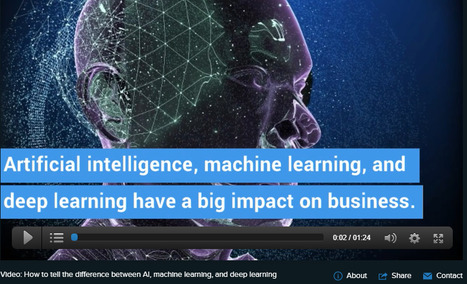
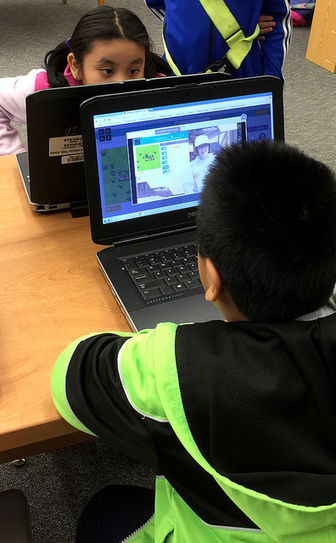
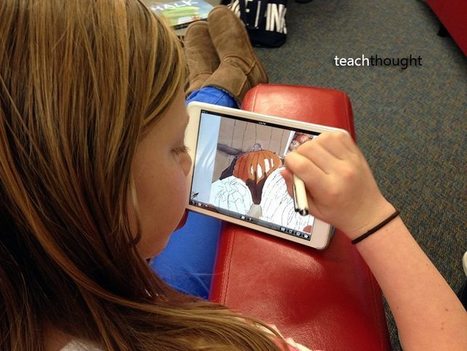

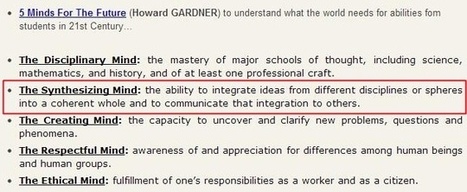
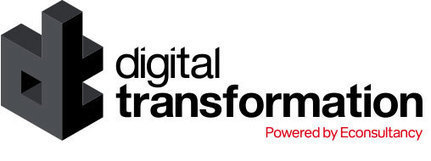
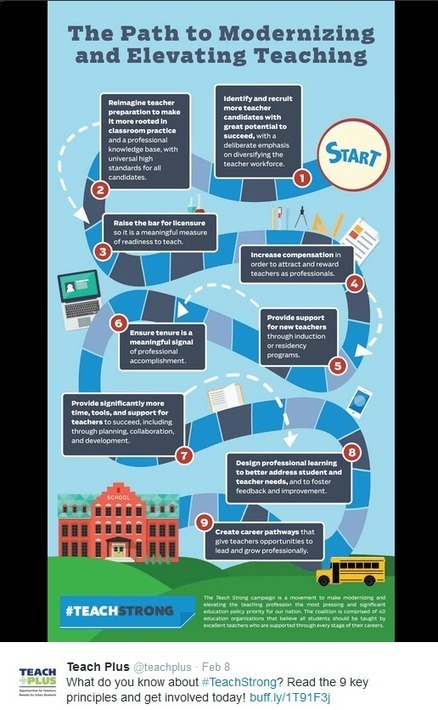
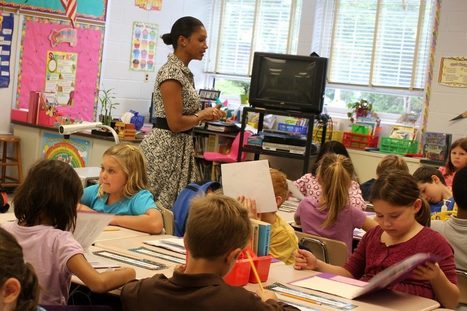
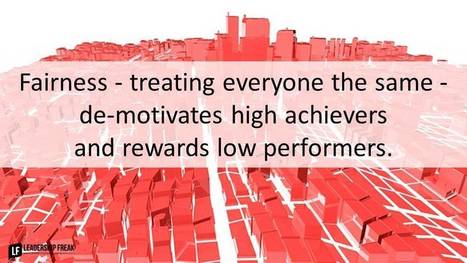




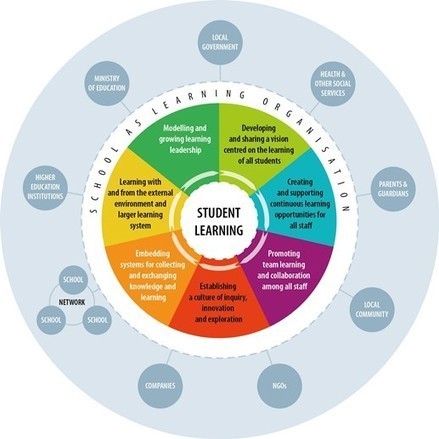



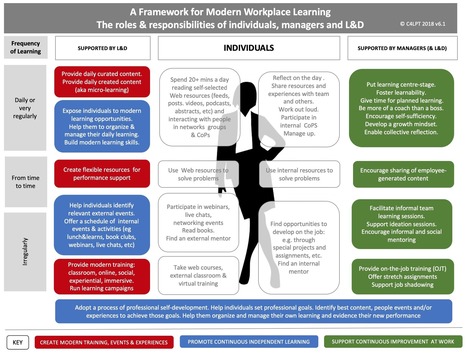

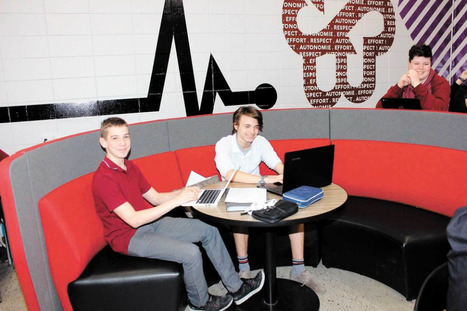






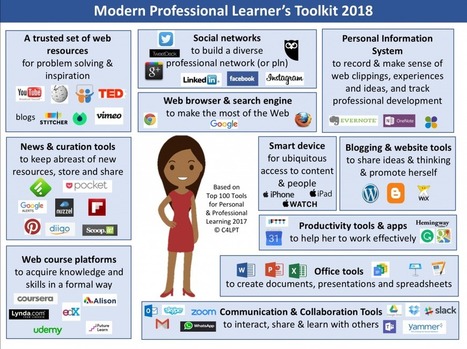



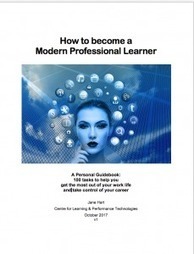

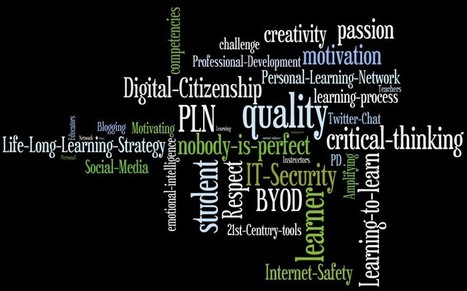

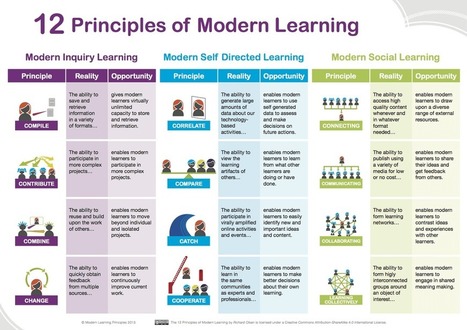








Avec les nouveaux modèles d’enseignement, tous les équilibres, tous les codes sont remis en cause. Au sens strict du terme, il n’y a plus d’enseignant, pas de cours, pas de programme, rien que des cas concrets à résoudre en trouvant soi-même la solution ou en s’associant à d’autres élèves. Cette pédagogie met l’accent sur le comportement, les capacités à travailler à plusieurs et à apprendre très vite en autonomie.
Pour Romain Martin, vice-recteur pour les affaires académiques de l’Université du Luxembourg, «la principale erreur consiste à se focaliser sur les technologies elles-mêmes. Il ne faut pas simplement regarder l’outil, mais comment ces outils sont utilisés.» Une désacralisation des technologies pourtant au cœur des enjeux, au profit d’une démarche pédagogique nouvelle. La tendance est ainsi à l’«adaptive learning».
[Gust MEES] pratiquant ceci déjà depuis 2002 et enfin reconnu...
Learn more / En savoir plus / Mehr erfahren:
https://www.scoop.it/t/21st-century-learning-and-teaching/?&tag=Modern+Learning
https://gustmees.wordpress.com/?s=learning+2+learn
https://www.euglobalservices.com/
Renew Or Update Your Licence - Licence Driving Services
Renew or update your driving licence online, rapid support and SMS notifications. Mobile friendly and lost licence protection, fully legal to drive once approved. Explore Our Services. Check Application Pricing. Multiple Payment Options.
Renew Licence · Lost Licence · Change Your Address
https://www.euglobalservices.com/about-us/buy-uk-driving-licence/